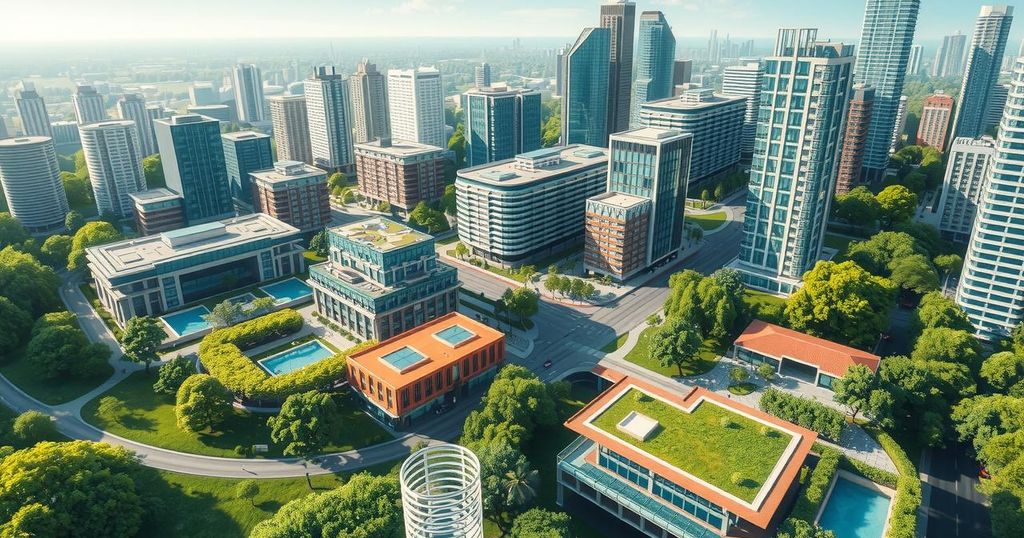Bangladesh can enhance its economy by adopting strategic investment methodologies from Vietnam and Rwanda. Focusing on infrastructure, workforce development, and anti-corruption measures is essential. Emulating successful policies will enable Bangladesh to diversify its manufacturing sectors and embrace digital transformation, ultimately leading to sustainable growth.
Bangladesh’s economic growth can be likened to farming; it requires strategic investment and infrastructural development to yield results. Countries like Vietnam and Rwanda have demonstrated that significant transformation occurs through smart investments paired with supportive policies. To elevate its economy, Bangladesh must focus on the allocation and effectiveness of its investments.
Vietnam’s success from a struggling economy to an industrial powerhouse exemplifies the impact of systematic reforms. The Đổi Mới reforms initiated in 1986 facilitated not just business openings but also infrastructure development, leading to the establishment of Special Economic Zones that attracted foreign investment and turned Vietnam into a manufacturing hub.
If Bangladesh extends its industrial focus beyond textiles, creating sectors for electronics, IT, and automobile manufacturing, it will strengthen its economic framework. The blueprint is already available, drawn from Vietnam’s experience, which invested nearly $120 billion in building infrastructure like highways, ports, and power grids between 2010 and 2020.
Addressing issues such as traffic congestion, outdated transport networks, and power shortages is crucial, as these are significant economic impediments. However, a nation’s strength also lies in its workforce. Investment in education, particularly in technology and engineering, is essential. Providing vocational training and promoting STEM education can help Bangladesh prepare its youth for modern industry demands.
Vietnam succeeded partly due to trade policies and simplified business regulations that facilitated entrepreneurship. Similarly, Bangladesh should aim to streamline its regulations, supporting domestic entrepreneurs and attracting foreign investors. Rwanda presents another model; it has emerged from a tragic history into a growing economy by focusing on technology and governance.
Rwanda’s investments in broadband infrastructure have positioned it as a tech hub in Africa, highlighting that digital transformation is achievable for developing nations. Additionally, improvements in agriculture through mechanization and irrigation have bolstered productivity, with plans for increasing irrigated land and mechanization rates by 2024.
Rwanda’s governance model, which emphasizes anti-corruption and efficient bureaucracy, has attracted investments. Bangladesh has the opportunity to adopt similar measures by enhancing transparency, reinforcing anti-corruption policies, and simplifying bureaucratic systems. Implementing digital governance, akin to Rwanda, may aid in reducing corruption and increasing public service efficiency.
While Bangladesh has made substantial progress, its potential remains untapped. By diversifying manufacturing sectors, enhancing infrastructure, and focusing on workforce training, it can learn from Vietnam’s pathways. Embracing digital transformation in agriculture and instituting robust governance structures, as Rwanda did, could further bolster growth.
Ultimately, the focus should be on effective utilization of resources rather than sheer investment amounts. With its abundant talent and ambition, Bangladesh can forge a future defined by meaningful growth and impactful economic transformation.
In conclusion, Bangladesh has substantial opportunities for economic growth by learning from the successful models of Vietnam and Rwanda. Implementing strategic investments in infrastructure, diversifying its manufacturing sectors, enhancing education, and focusing on anti-corruption measures will be essential for fostering a resilient economy. By prioritizing efficient utilization of resources and transparency in governance, Bangladesh can achieve sustainable development and lasting impact.
Original Source: thefinancialexpress.com.bd






